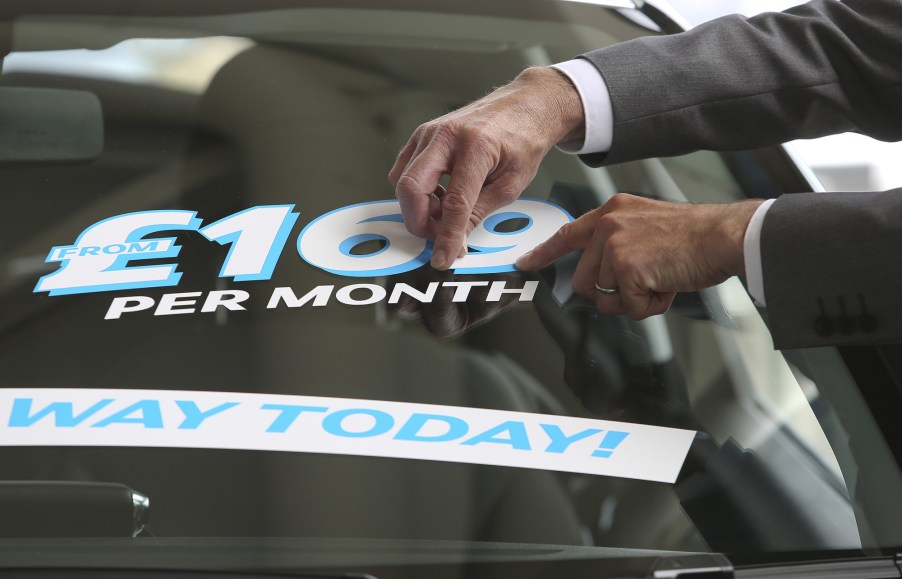
What is the Manufacturer Suggested Retail Price (MSRP)?
You have probably heard the phrase Manufacturer Suggested Retail Price (MSRP) before, but do you know what it means? This term, along with sticker price, invoice price, and recommended retail price, is thrown around a lot in the car buying process. This is especially important when supply is low, and demand is high, much like right now with the supply chain issues.
What is the Manufacturer Suggested Retail Price?

The Manufacturer Suggested Retail Price is the price that the manufacturer has suggested the item be sold for. It is also sometimes called the list price, according to Investopedia. Though you probably hear this most often concerning cars, most high-end goods have an MSRP.
The Manufacturer Suggested Retail Price was designed to be sure prices remained level from location to location and store to store. It also makes it easier for stores to know how to price an item. If an item, such as a car is in high demand, stores can increase the price of an item to make extra money. Conversely, stores may cut prices to move inventory.
This term also has a few different names. The recommended retail price (RRP), sticker price, list price, and even sometimes just the suggested retail price.
Why is the Manufacturer Suggested Retail Price different from the invoice?
There are a few differences between the MSRP and the invoice. Car and Driver covers the differences between the two. While both terms cover the price of the car, it is good to know the difference, especially if you are in the market to purchase a car.
The MSRP, as covered, is the price manufacturers suggest dealerships sell the car at. Most of the time, you will see this price in ads and commercials. This does not mean that the price you see quoted in the MSRP is the price you will pay. The MSRP is often the starting price for negotiations between a dealer and a buyer. If the vehicle is in demand, you might pay the full MSRP. If not, you can probably negotiate for a lower price.
The market price for a car has other things factored in, like options and incentives. This could be dealer-added upgrades or even dealer discounts. The market value fluctuates because it depends on so many factors.
The invoice price is what the dealer paid to the manufacturer. If the dealership can sell it for more than the invoice price, the excess is a profit.
The Kia Telluride is a good example of this
The 2021 Kia Telluride SUV has taken the automotive market by storm. While there is a semiconductor chip shortage impacting production, the Telluride is even harder to find. Car dealerships have been raising prices to make up for the demand.
Due to this, one dealership in Montana raised the Telluride price by about $25,000 over MSRP. This included a high-level trim and some other options as well. You won’t be able to test drive the vehicle or order another one right now, either. Someone bought the $78,000 Telluride, and it appears the dealer only has one left.



